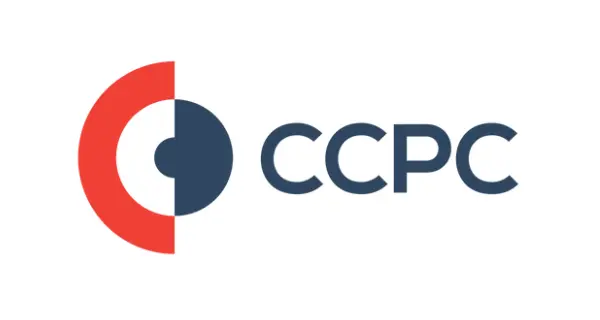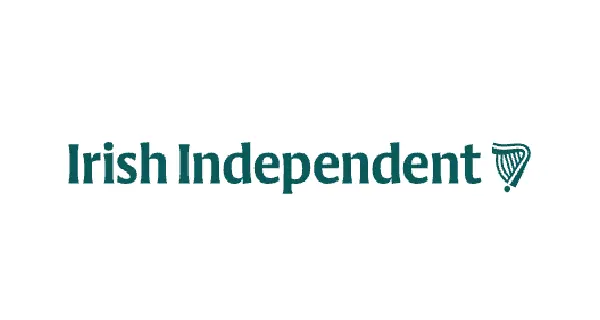Compare savings accounts for Irish savers
Rates up to 3.05% AER (02/2026)
Savings accounts from across Europe with deposit protection
No fees, endless logins or paper application forms
Rates up to 3.05% AER (02/2026)
Savings accounts from across Europe with deposit protection
No fees, endless logins or paper application forms

An offer from Raisin Bank AG trading as Raisin.
Home › Savings accounts
Last updated: 09.12.2025

"Best Savings Provider" 2025

Member of the CCMA

Featured in the CCPC Money Tools

Featured in the Irish Independent
With so many different ways to save money in Ireland, it can be difficult to know which savings account is best for you. Consumers in Ireland can also save with regulated banks across Europe. Whether you’re saving a lump sum or putting money aside regularly, on this page, you can see how different savings accounts compare and find one to suit your needs.
Key takeaways
A savings account is a type of bank account that lets you deposit money while on your balance
Compare some of the best savings accounts available on our marketplace, benefit from , and
All savings accounts at Raisin are protected up to per depositor and bank, under national deposit guarantee schemes
The information provided here is for informational and educational purposes only and does not constitute financial advice. Please consult with a licensed financial adviser or professional before making any financial decisions. Your financial situation is unique, and the information provided may not be suitable for your specific circumstances. We are not liable for any financial decisions or actions you take based on this information.
Top savings accounts at Raisin
Wondering which savings account might work best for your situation? Discover the options available through Raisin’s partner banks and explore which type of account may be a good match for your savings needs.

Deposit accounts
You’re likely to earn the most interest with a deposit account. In return, however, your money is locked away for a set term, so you won’t be able to make withdrawals.
Fixed term deposits, as they are also called, offer fixed interest over a set term, typically ranging from three months to seven years. Longer terms often mean higher interest rates.
At Raisin, you can currently earn up to 2.48% AER on a 1 year deposit account, 2.70% AER for a 2 year deposit, and 2.81% AER for 3 years. Check Raisin’s full list of partner banks to compare offers.
Deposit accounts may be suitable if you have a lump sum of money you want to grow, perhaps for a longer-term savings goal.

Demand deposit accounts
One of the most flexible types of savings accounts in Ireland, demand deposit accounts let you withdraw or top up your money whenever you want.
These accounts usually offer variable interest rates which can increase or decrease while the account is open.
At Raisin, you can earn up to 2.08% AER variable on a demand deposit account. Find a complete list of top offers from our partner banks.
A demand deposit account could be ideal if you prefer flexibility and easy access to your savings. It may be a good option for short-term savings goals, or if you want to put money away regularly and grow your funds.
Featured savings accounts
How to open a savings account with Raisin
Register for free and verify your identity
Apply to open your savings account quickly and easily using the secure VideoIdent process. Once your identity is confirmed, you’ll have access to all our savings accounts.
Choose an offer
Browse and select the right savings account for you.
Transfer your funds
Transfer your chosen deposit amount to your Raisin Account via SEPA transfer. Our secure online banking platform gives you full control at all times.
What are savings accounts for in Ireland?
A savings account is not only a place to stow your money; it can also help you elevate your finances. Your money will grow based on the account’s interest rate and how much you deposit. And if your chosen provider offers deposit guarantee protection, eligible funds of up to €100,000 per person, per bank are protected if the bank collapses.
As for what you save for, that can be absolutely anything. You might be thinking about saving for a house deposit, your wedding, retirement, or even a once-in-a-lifetime holiday.
What are the pros and cons of savings accounts in Ireland?
Most savings accounts are easy to open, and you can deposit money (within certain limits) by using online transfers. | Inflation could mean that your money ends up having less buying power if interest rates remain low. |
You can grow your money with savings accounts by choosing one that offers a competitive rate of interest. | Some regular savings accounts have a minimum balance requirement, such as €500 a month, meaning you will need to deposit a given amount regularly. (Raisin does not offer regular savings accounts). |
Demand deposit accounts let you withdraw your money at any time, while fixed term deposits lock away funds for a set period in exchange for higher interest. | While easy access can be seen as a major plus, it also means that saving could be difficult if you give in to temptation. |
With Raisin, deposits of up to €100,000 per person, per bank are legally protected by the national deposit guarantee scheme of the country where the bank is headquartered. | Some savings accounts, including fixed term deposits, have restrictions in terms of withdrawal limits and access. Be sure to check the terms and conditions before you commit. |
Interest earned on savings accounts in Ireland is subject to Deposit Interest Retention Tax (DIRT), currently 33%. |
How to calculate interest on a savings account in Ireland
If you’re comparing savings accounts in Ireland, it can help to know what type of interest they offer. Some accounts have simple interest, which is calculated only on the money you deposit. Others earn compound interest, which means interest grows on both your deposit and the interest it has already earned (making it grow more quickly).
Here’s how this might look with a €10,000 deposit at a rate of 4.00% AER:
Initial deposit | Rate (AER) | Term | Compounding | Total interest earned | Balance | |
Simple interest | €10,000 | 4.00% | 1 year | N/A | €400 | €10,400 |
Compound interest | €10,000 | 4.00% | 1 year | Semi-annual | €408 | €10,408 |
These examples are purely illustrative and should not be viewed as indicative of the returns of any specific financial product or as financial advice. Please read individual product terms for the details of how interest is calculated and paid.
At Raisin, all the rates in our offers table already account for compounding, so you can see what your money could earn. If you’d like to learn more, read our guide to compound interest.
How is interest paid on savings accounts in Ireland?
How interest is paid depends on your savings account. By checking the details, you can make sure you’re getting an account that best suits your needs. It’s common to receive interest payments once a year, either on a predetermined date or on your account opening anniversary. With savings accounts that offer compounding, interest may be paid out monthly or even quarterly. In the case of fixed term deposits, you may only receive an interest payment when your account matures, which could be up to seven years.
You’ll usually receive interest payments into a bank account you nominate, or the interest you earn can go straight back into your savings account. If you have a preference, make sure you check this when you're initially comparing savings accounts.
When will interest rates go up or be cut in Ireland?
This is dependent on the European Central Bank’s (ECB) monetary policy decisions. To find out more, read our page on what’s next for interest rates in Ireland.
Are savings accounts taxed in Ireland?
Yes, interest earned on savings accounts in Ireland is subject to Deposit Interest Retention Tax (DIRT). In 2025, the standard DIRT rate is 33%.
Any tax you need to pay on your interest is typically deducted by your bank before the interest is paid to you. If you’d like to know more about your deductions, you can request a statement of DIRT from your provider.
In the case of savings accounts offered through Raisin, DIRT is not automatically deducted, and you’re responsible for declaring this interest on your Irish tax return. This is because our partner banks are outside Ireland.
Deposit Interest Retention Tax might not apply to interest on savings accounts that are owned by:
- People not resident for tax in Ireland
- Permanently incapacitated individuals
- People aged 65 or over with total income below a given exemption limit
We've put together a handy guide if you'd like to find out more about how Raisin savings accounts are taxed.
The information provided here is for informational and educational purposes only and does not constitute tax advice. You should consult with a qualified tax professional or adviser regarding your individual tax situation. Tax laws and regulations are complex and subject to change, and the information provided may not be applicable to your specific circumstances. We are not liable for any tax decisions or actions you take based on this information.
How many savings accounts can I have in Ireland?
You can open as many savings accounts in Ireland as you like, and some people take a strategic approach. For example, you could open a fixed term deposit account for long-term savings, and have an emergency pot in a demand deposit account.
Protected savings accounts in Ireland will cover your money up to €100,000 per depositor and bank according to EU laws, so if you have more than this amount to deposit, you could spread this money over more than one savings account to ensure you’re covered by the limit.
Is my money protected in a savings account?
The Deposit Guarantee Scheme protects your money in the event that your bank, building society, or credit union authorised by the Central Bank of Ireland collapses. Deposits up to €100,000 per person, per financial institution are protected under the scheme, and the money is usually paid to you within 15 working days of your institution failing.
Because Raisin partners with banks outside of Ireland, your account will be protected by the Deposit Guarantee Scheme in the relevant bank’s country, in accordance with EU law.
Start saving with Raisin
Compare and open savings accounts with interest rates up to 3.05% AER, from a range of European banks. It’s free to register, and once you’ve been approved, you just need to select the account that’s right for you, and start putting your savings to work!
FAQs about savings accounts in Ireland
Should you compare savings account interest rates?
Yes. This is partly due to inflation, because money in an account that doesn’t earn above-inflation rates can lose purchasing power. Plus, Irish savers with money in current accounts or low-interest accounts are missing out on €3.5bn. By shopping around online and comparing savings accounts from across Europe, you may be able to find higher rates than on the high street.
If you're wondering which savings account might work best for your situation, consider the following:
- Deposit amount – Are you saving a lump sum or smaller monthly amounts?
- Access to funds – How long are you prepared to lock your money away? Do you need instant access? This will also depend on whether you have a savings goal in mind.
- Interest payments – How and when will interest be paid: monthly, quarterly, annually, or at the end of the term?
- Account type mix – Could splitting your money across different account types give you a better balance of flexible access and competitive rates?
- Tax – Understand DIRT and how it could lower your final earnings.
- Deposit protection – Ensure your chosen account is covered by the respective country's deposit guarantee scheme (up to €100,000 per person and bank).
How do savings accounts work?
When you deposit money into a savings account, the bank may lend your money to others or invest it, and, in return, pays you interest.
Access to your funds depends on the account type: you can withdraw at any time with demand deposit accounts, while fixed term deposits require you to wait until the end of the term.
Who can open a savings account?
Each savings account will have its own terms and conditions regarding who can open an account and with what amount, but you will usually have to be aged 18 or over to open a savings account on your own.
If you’re under 18, some providers offer children’s savings accounts. Raisin does not offer accounts for under 18s.
What are the most common types of savings accounts in Ireland?
There are several different types of savings accounts, all offering different benefits. Let’s compare the savings accounts most commonly found in Ireland:
- Fixed term deposit accounts: Fixed term deposits require you to lock away your money for a set period of time. Interest rates are typically competitive, especially over the longer term.
- Demand deposit accounts: A demand deposit account is flexible in that it allows you to deposit and withdraw money at any time.
- Regular savings accounts: Most banks offer regular savings accounts, which are sometimes tailored towards a savings goal - mortgage savings accounts, for example. They typically require you to save a set amount each month, which may be useful for those who are starting with a small amount rather than a lump sum. They don’t tend to offer very competitive interest rates, but are a better alternative than leaving your money in your current account. Alternatively, savers can set up their own savings plan by transferring amounts regularly into a demand deposit account. See Raisin’s savings plan for more information.
Are savings account interest rates worth it?
Savings accounts can be one of the most reliable ways to grow your money. Currently, some of the most competitive interest rates on savings in Ireland are lump sum savings accounts, or fixed term deposits, that lock your money away to earn interest for a set period of time. You can view the top savings account rates in the table above. The most competitive lump sum account on our marketplace has an interest rate of 3.05% AER.
Smarter saving starts here.
Find out more about savings accounts
Company & team
Savings accounts
Information
Company & team
Savings accounts
Information
© 2026 Raisin Bank AG, Frankfurt a.M.
All interest rates displayed are Annual Equivalent Rates (AER), unless otherwise explicitly indicated. The AER illustrates what the interest rate would be if interest was paid and compounded once a year. This allows individuals to compare more easily what return they can expect from their savings over time. Raisin Bank, trading as Raisin, is authorised/licensed or registered by BaFin (Bundesanstalt für Finanzdienstleistungsaufsicht) in Germany and is regulated by the Central Bank of Ireland for conduct of business rules.






